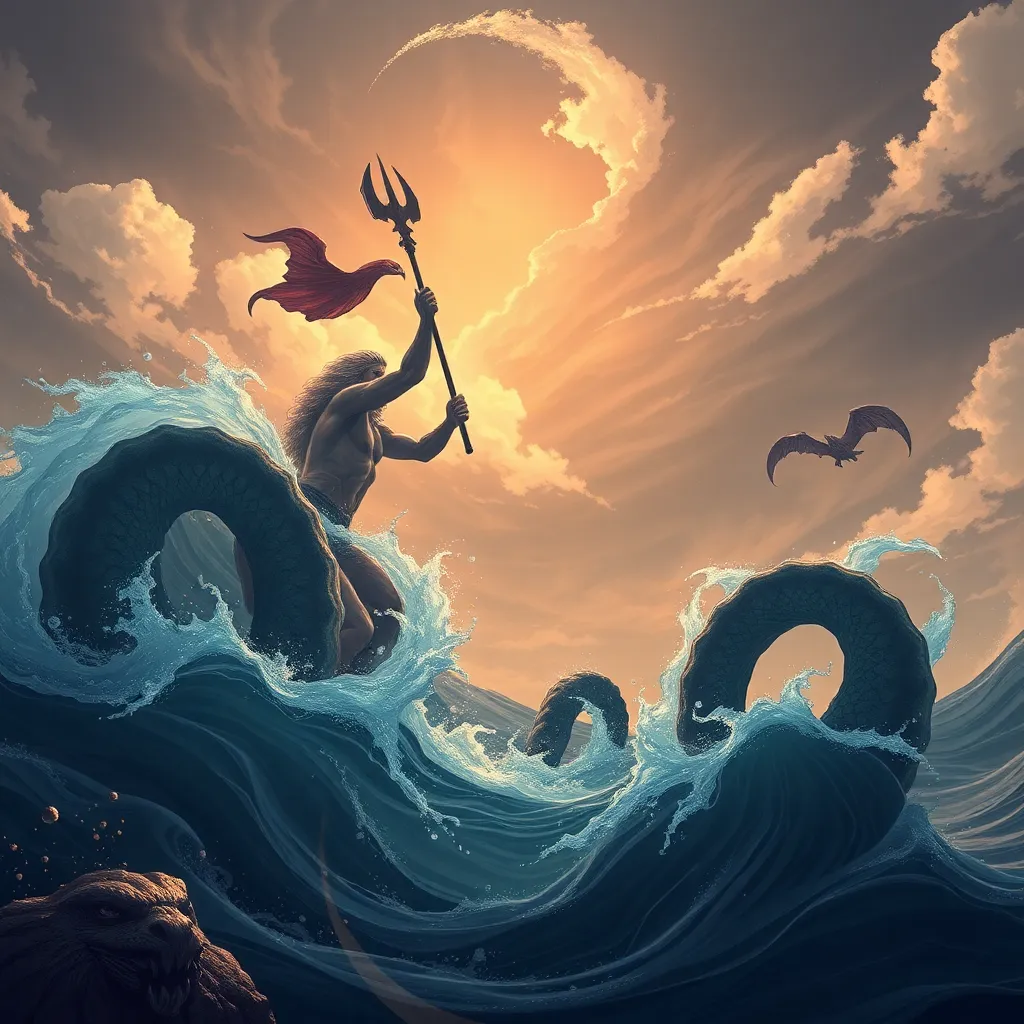Perseus’ Encounter with the Kraken: Fact vs. Fiction in Greek Legends
I. Introduction
In the vast tapestry of Greek mythology, few heroes shine as brightly as Perseus. Renowned for his bravery and divine lineage, Perseus embodies the quintessential hero archetype, overcoming formidable challenges with the aid of the gods. Among the many legends surrounding him, the tale of his encounter with the Kraken has captured the imagination of audiences across generations.
The Kraken, a colossal sea monster often depicted as a giant octopus or squid, has its origins in Norse mythology but has since permeated various cultures, including Greek. The purpose of this article is to explore the blending of fact and fiction in the tale of Perseus and the Kraken, examining how these two myths intersect and evolve over time.
II. The Myth of Perseus: A Brief Overview
Perseus is perhaps best known for his daring quest to slay the Gorgon Medusa, a creature whose gaze could turn men to stone. His story is replete with key events that showcase his heroic qualities and the divine intervention that guided him:
- Born to Danaë and Zeus, he was destined for greatness from birth.
- Tasked by King Polydectes to retrieve Medusa’s head, he undertook a perilous journey.
- With the help of Athena and Hermes, he acquired magical tools, including a reflective shield and winged sandals.
- After successfully beheading Medusa, he used her head as a weapon against his enemies.
The Gorgon, a central figure in his narrative, symbolizes the duality of beauty and horror, serving as both a challenge for Perseus and a testament to his valor.
III. The Kraken: Origins and Evolution
The Kraken myth has historical roots in various cultures, often described as a monstrous creature lurking in the depths of the sea. While its origins can be traced back to Norse folklore, where it was said to drag ships and sailors beneath the waves, the Kraken has evolved in modern interpretations:
- In Scandinavian tales, it is depicted as a giant squid, feared by fishermen.
- Other cultures have their own sea monsters, such as the Leviathan in Hebrew tradition and the Makara in Hindu lore.
Despite its non-Greek origins, the Kraken has become intertwined with Greek mythology, largely due to popular culture, particularly the 1981 film “Clash of the Titans” and its 2010 remake, where the Kraken was portrayed as a fearsome adversary for Perseus.
IV. Perseus vs. the Kraken: The Collision of Legends
The adaptation of the Kraken into the Perseus narrative represents a fascinating collision of legends. The Kraken’s role in “Clash of the Titans” exemplifies how modern interpretations can reshape ancient myths:
- The film introduced the Kraken as a primary antagonist, diverging from traditional myths that did not originally include this creature.
- In the original myth, Perseus faced various challenges but not the Kraken, which reflects the filmmakers’ creativity in weaving new elements into the story.
Comparing ancient texts with modern interpretations reveals significant differences. Ancient sources like Apollodorus and Ovid do not mention the Kraken, emphasizing the importance of distinguishing between mythological accuracy and artistic liberty.
V. The Role of Mythological Creatures in Greek Culture
In Greek mythology, monsters and mythical creatures serve essential functions, often embodying the fears and values of ancient society:
- They symbolize chaos and the unknown, representing the challenges heroes must confront.
- Mythical creatures like the Minotaur and the Chimera often convey moral lessons about hubris and the consequences of defying the gods.
Other notable creatures associated with Perseus include Pegasus, the winged horse born from Medusa’s blood, and the sea monster Cetus, which was a threat to Andromeda. Each of these beings reflects the cultural values and fears of ancient Greeks, illustrating the complex relationship between humans and the divine.
VI. Historical Context: The Reality Behind the Myths
Examining the historical and geographical elements in the tale of Perseus provides insight into the potential real-life inspirations behind these myths:
- Myths often incorporate elements from the natural world, such as real sea creatures that might have inspired the Kraken legend.
- Geographical locations in Greece, like the Aegean Sea, were known for their perilous waters, fostering tales of monstrous sea beings.
Storytelling in ancient Greece served to preserve history while also providing entertainment, blending fact with fiction to create compelling narratives that reflected societal beliefs.
VII. The Impact of Media on the Perseus and Kraken Narrative
The representation of Perseus and the Kraken in various adaptations has significantly influenced public understanding of these myths:
- Films like “Clash of the Titans” have popularized the Kraken, often overshadowing the original myths.
- Literature and art have also played a role in shaping perceptions, often prioritizing dramatic elements over historical accuracy.
This dichotomy between scholarly interpretations and popular culture highlights the ongoing evolution of myth and its ability to adapt to contemporary contexts.
VIII. Conclusion
In summary, the narrative of Perseus and the Kraken serves as a fascinating case study of how myths evolve, blending fact and fiction over time. While Perseus remains an iconic hero of Greek mythology, the Kraken’s incorporation into his tale illustrates the influence of popular culture on ancient legends.
The enduring legacy of Greek mythology in contemporary society reflects a deep-rooted fascination with these stories, reminding us of the importance of distinguishing myth from history. As we explore these tales, we gain insight into the values and fears of ancient cultures, as well as the timeless nature of storytelling.




